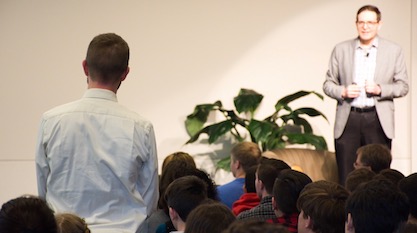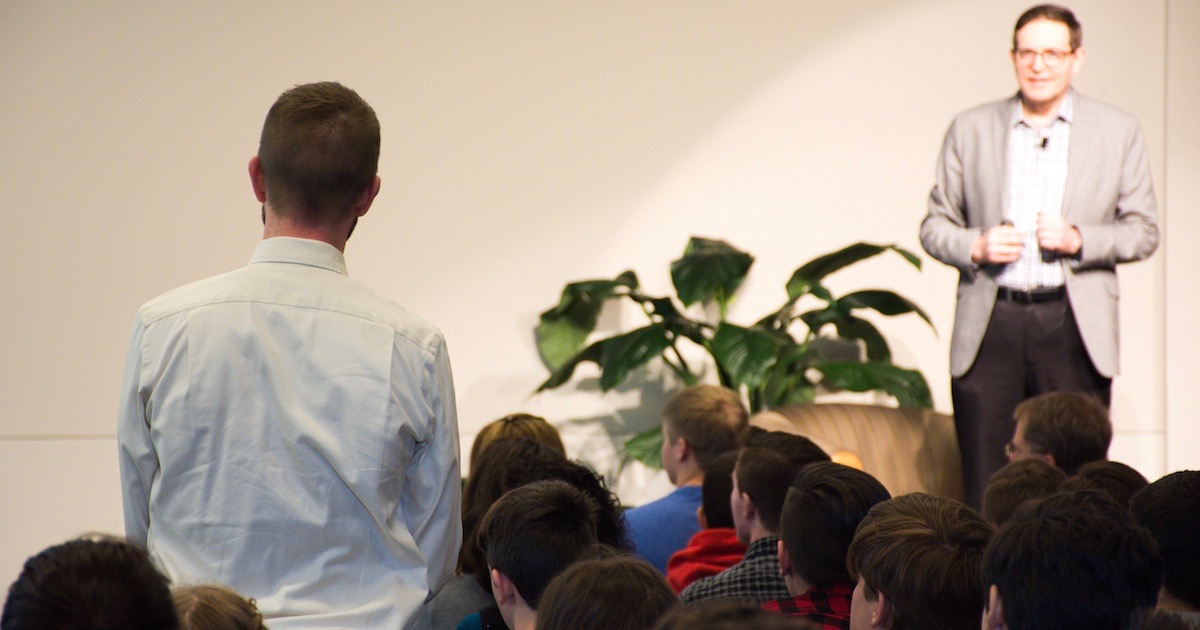 Education
Education
 Intelligent Design
Intelligent Design
In Seattle and Dallas, Education Days Will Offer Students the Latest In Intelligent Design Research


Oftentimes, the story goes like this: Scientists make discoveries, and publish them in peer-reviewed journals. Months later (in a best-case scenario), textbook editors collect these discoveries and release an updated version of the book for classroom use. Purchasing the latest edition each year is too pricey for many educators and school districts, so students may be using a years-earlier-edition in their studies. So, by the time students read about these scientific discoveries, they’re very stale, and have been heavily censored to fit the current paradigm.
Unique Learning Opportunities
Here’s a novel idea: Let the students hear about the latest progress in research directly from the scientists themselves — unfiltered by academic pressures, and open for questions and criticism. And then, let them wrestle with the evidence for themselves! These opportunities are rare, to be sure, which is why you won’t want to miss out on these upcoming events in Seattle and Dallas.
Following a successful event in Richmond, VA, a couple weeks ago, we are now looking forward to our Intelligent Design Education Days in Seattle, WA, on March 20, and Dallas, TX, on March 29. These events are designed as field trip opportunities for private and home school students, their parents and educators. It’s a chance to hear about cutting-edge discoveries related to the design of the universe, and to hear a different perspective on the origin of life than is typically presented in a high school textbook — all this from respected scientists in the field.
In Seattle, students will hear from physicist Brian Miller, biologist Jonathan Wells, and biochemist Michael Behe. They’ll learn about the fine-tuning of the universe, the true nature of mutations and evolution, as well as a response to Darwinian claims in textbooks and the media. Similarly, students in Dallas will have the privilege of hearing from biologist Ray Bohlin and philosopher of science Paul Nelson, among others.
Questions and Answers
After each presentation, students will engage in Q&A with the speakers — essentially skipping over years (and layers of censorship) typically wedged between the research and education on scientific discoveries.
Don’t miss the chance to register for these free events! For Seattle, visit the event page here, or contact Daniel Reeves at dreeves@discovery.org. For Dallas, visit the event page here or contact Pam Bailey at pbailey@discovery.org.
Photo: Brian Miller teaches at ID Education Day in Seattle, by Daniel Reeves.
